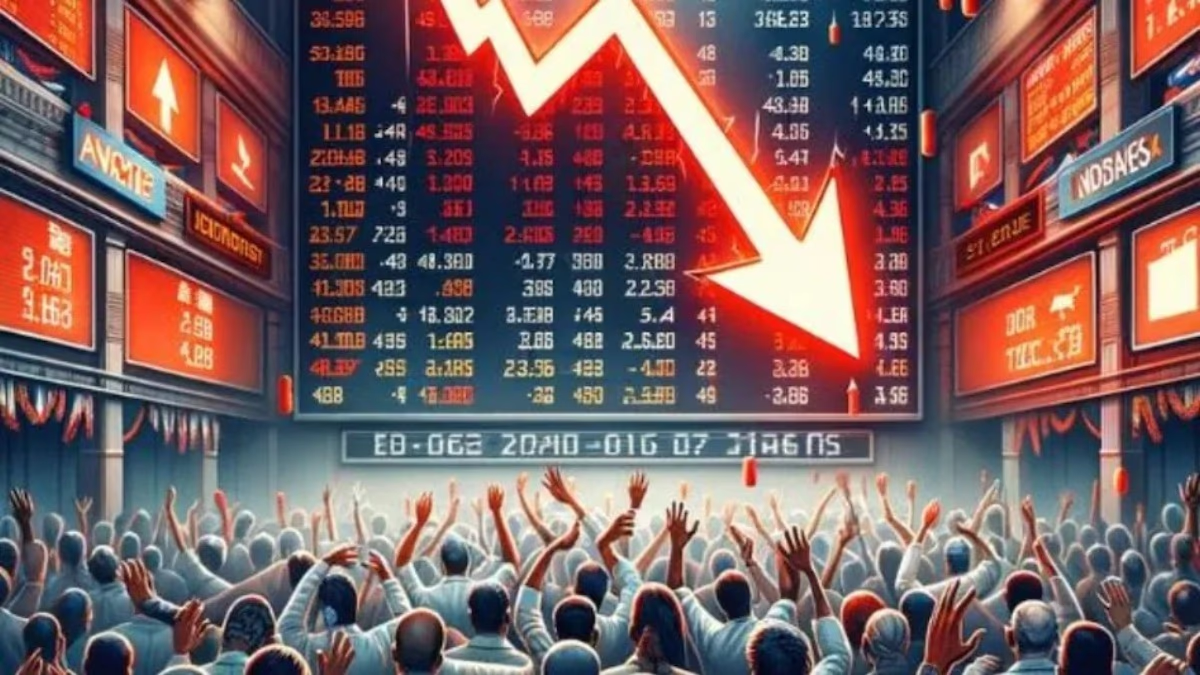The repercussions of U.S. President Donald Trump's tariffs are far from easing. Following the hefty declines from last Friday's trading session, the panic surged among Asian markets on the week's first day. Hong Kong's Hang Seng plunged over 9%, while Japan's Nikkei tumbled more than 8%. Rumbles are visible across other markets as well. Concerns are rising over whether U.S. market expert Jim Cramer's forecast of 1987-like conditions might come true.
Everything Seeing Red in Asian Markets
Following the announcement of Trump's reciprocal tariffs, heavy sell-offs were observed in stock markets globally, including India. The U.S. saw its deepest fall since the pandemic. NSE Nifty fell by 400 points, and BSE Sensex dropped over 1,000 points last Friday. Similar conditions persisted on Monday, with weak global signals impacting the Indian market. Nearly all Asian markets traded in the red, with Gift Nifty dropping nearly 900 points at the start.
South Korea's Kospi Index tumbled around 5%. Hang Seng slid 9.40%, DAX 4.95%, CAC 4.26%, and FTSE 100 index plunged 5% in trading.
Experts Sound Recession Alarm
Analysts express concern about the hefty tariffs imposed by Trump on America's business partners potentially leading the nation towards a recession, sparking a global downturn. Donald Trump's 25% tariff on imported cars became effective last Thursday, heightening the global trade war. In a discussion with the Chinese Global Television Network (CGTN), former U.S. News and World Report senior editor Joseph Williams cautioned about high inflation, declining employment, and increasing global recession risks.
'Prices in America Are Set to Rise...'
Joseph stated, 'I certainly believe prices in the U.S. will rise, and voter anger will swell, possibly triggering a recession that will have global implications. With decreased U.S. consumption, worldwide production will dwindle.' He predicted U.S. unemployment levels could reach 5% or more.
WinCap Financial's CEO Michael Collins also noted that the crisis has dealt severe damage to U.S. markets, recoverable only by reconsidering and revising Trump tariffs. Such actions could restore market vigor.
Furthermore, according to Bloomberg, Trump's move may shrink the U.S. GDP to -0.3% from a previously estimated 1.3%. The report suggests that reduced economic activities could affect hiring, likely raising U.S. unemployment to 5.3%.
'Black Monday' Prediction Becoming Reality?
Last week, Trump's tariff announcements caused uproar globally, affecting China, Taiwan, Pakistan, and India with reciprocal tariffs. This led to significant drops in global markets, and the U.S. stock market was no exception. This disruption isn't likely to pause, as experts warn of further crashes extending from Dow Jones to Nasdaq.
U.S. market analyst Jim Cramer, during a TV show, predicted possible devastation akin to 1987's crash, where Dow Jones experienced its steepest single-day drop ever. As he discussed on the show, Monday might face its worst one-day fall since 'Black Monday.' Similar scenes unfold across Asian markets too.




